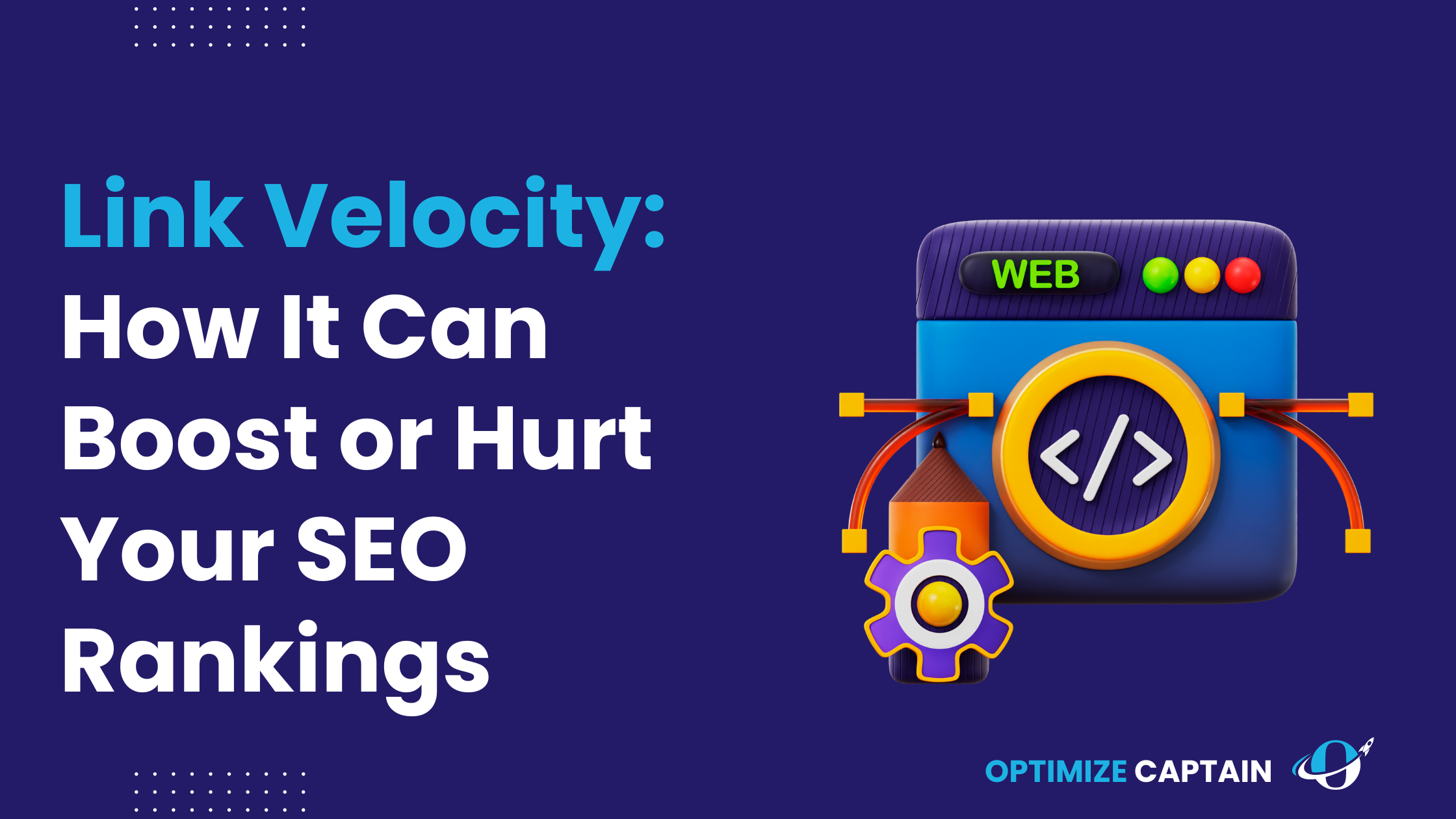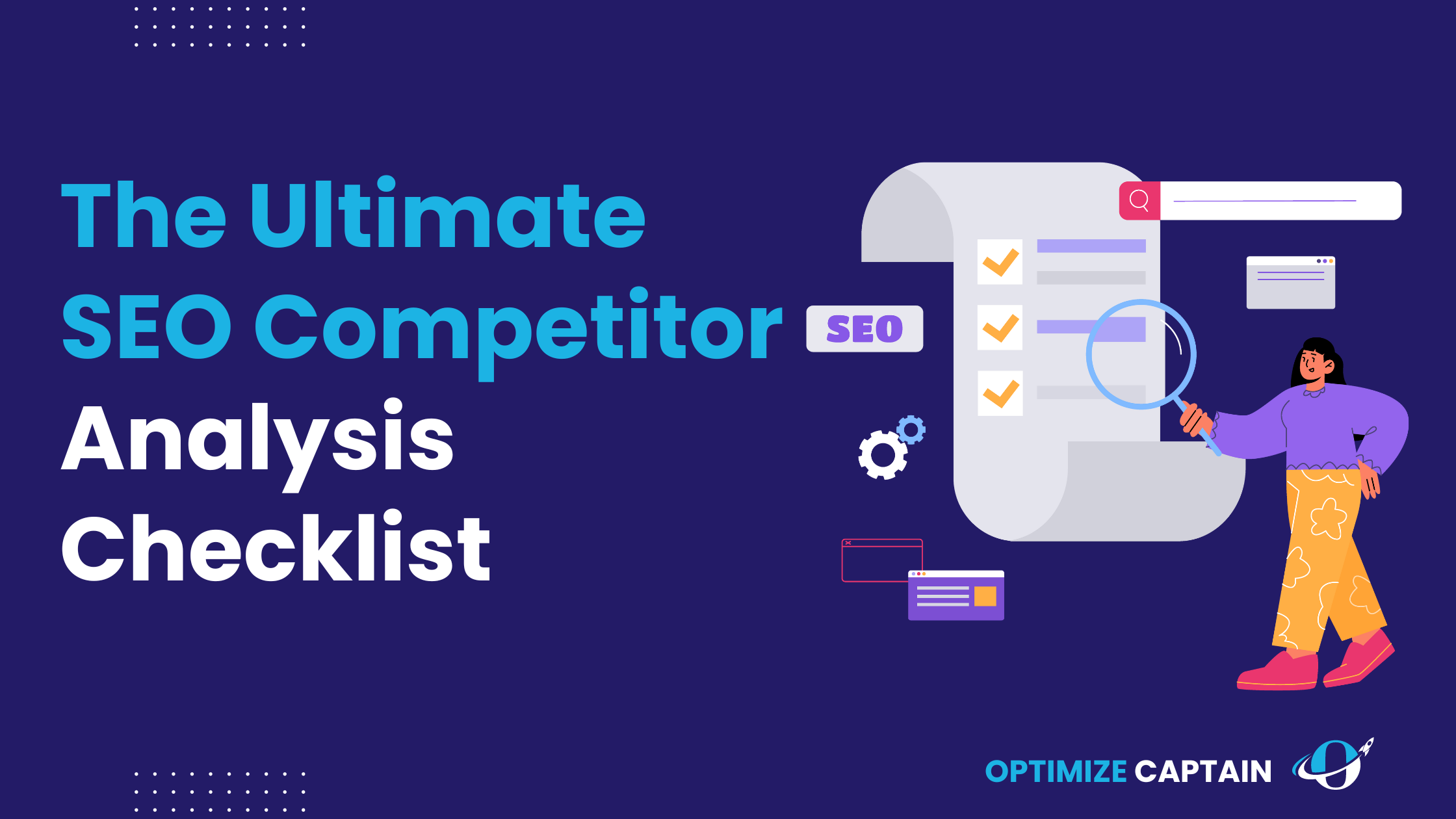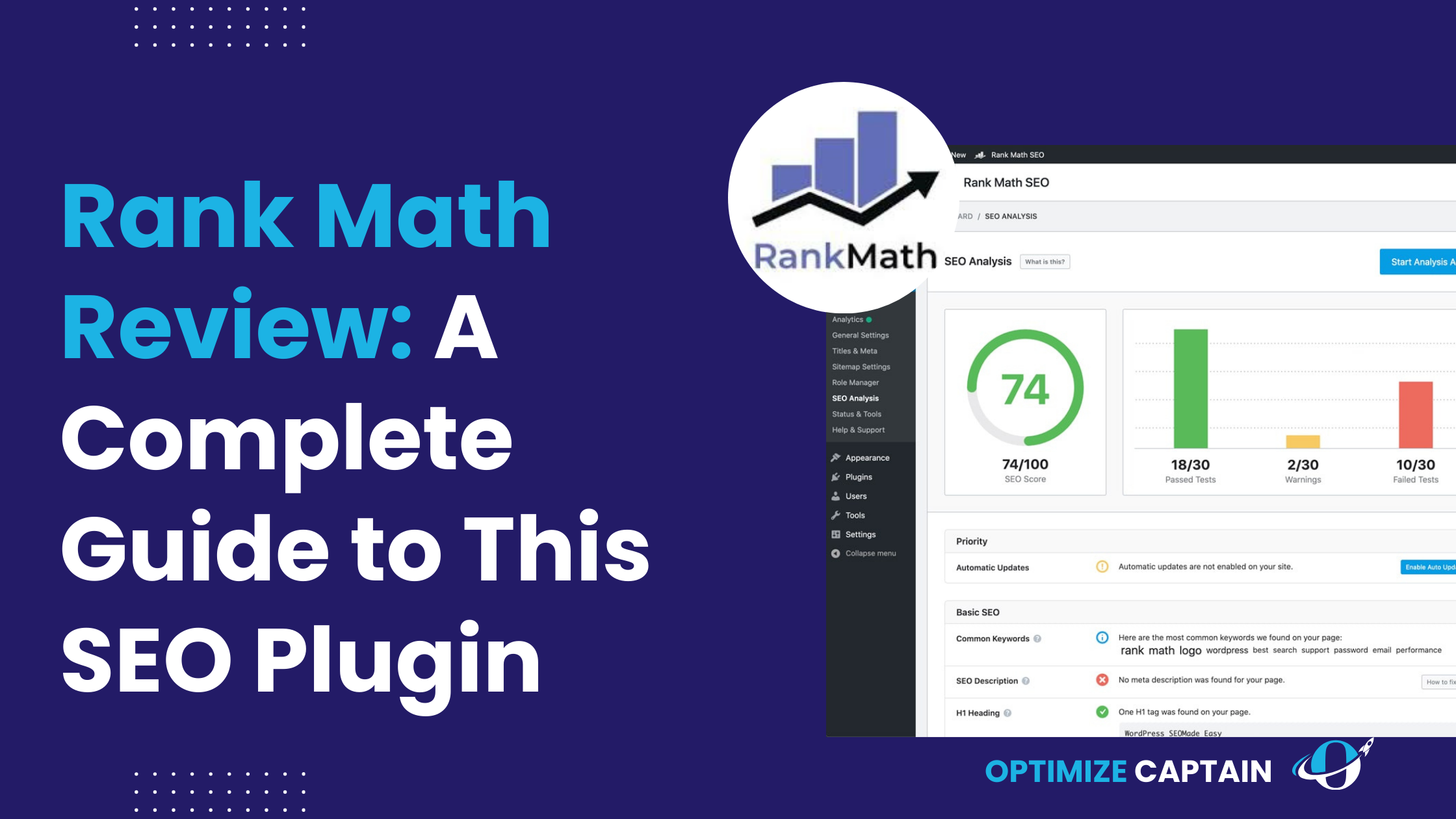There are thousands of SEO tools available, and finding the right one can feel like finding a needle in a haystack.
With so many options, how do you choose the best tool for your SaaS business?
Don’t worry, you’re not alone.
This article will guide you through the top 20 SEO tools of 2024, both free and paid, to help you improve your rankings and drive more traffic. Let’s dive in!
What is SEO for SaaS?
SEO (Search Engine Optimization) for SaaS (Software as a Service) involves optimizing your software website to rank higher in search engine results pages (SERPs). The goal is to drive organic traffic, attract potential customers, and increase conversions. SEO for SaaS focuses on keyword research, content creation, on-page and off-page optimization, and technical SEO aspects tailored to the SaaS industry.
Why Are SEO Tools Important for SaaS Businesses?
Managing SEO in-house can be a time-consuming task. SEO tools streamline the process by automating various tasks and providing valuable insights. Here’s how they can benefit your SaaS business:
- Keyword Research: Discover high-volume, low-competition keywords that your target audience is searching for.
- Content Optimization: Create content that search engines love and that users find helpful.
- Technical SEO Audits: Identify and fix technical issues that might be hindering your ranking.
- Competitor Analysis: See what your competitors do well in SEO and adapt your strategy accordingly.
- Rank Tracking: Monitor your progress and track your website’s ranking for important keywords.
Choosing the Best SEO Tool for Your SaaS Business
With a vast array of SEO tools available, selecting the right one for your SaaS business can be overwhelming. Consider these factors:
- Features: Ensure the tool has all necessary features like keyword research, backlink analysis, and site audits.
- Ease of Use: The tool should be user-friendly with a minimal learning curve.
- Integration: It should integrate seamlessly with your existing software and tools.
- Pricing: Assess whether the pricing fits within your budget, considering both free and paid options.
- Support: Look for tools with reliable customer support and resources.
The 20 Best SEO Tools to Boost Your SaaS Ranking
Now, let’s dive into the best SEO tools for your SaaS business in 2024, categorized by free and paid options.
10 Free SEO Tools:
- Google Analytics
Top Features: Real-time data, traffic sources, audience insights, behaviour flow, and conversion tracking.
Pricing: Free.
Cons: Steep learning curve for beginners, complex interface.
Pros: Comprehensive data, integrates with other Google tools.
Use Case: Track and analyze website traffic and user behavior.
Example: A SaaS company uses Google Analytics to identify top-performing content and understand user paths.
Best For: In-depth traffic analysis.
Google Analytics is a powerful tool that provides real-time data on user activity, detailed traffic source analysis, and audience insights. You can track user behavior flow to understand how visitors navigate your site and set up conversion tracking to measure goal completions. Despite its complexity and steep learning curve, it’s invaluable for in-depth traffic analysis and integrates seamlessly with other Google tools.
- Google Search Console
Top Features: Performance reports, URL inspection, coverage reports, mobile usability, security issues.
Pricing: Free.
Cons: Limited to Google search data.
Pros: Direct insights from Google, easy to use, essential for fixing indexing issues.
Use Case: Monitor website performance and fix indexing issues.
Example: A SaaS startup uses Search Console to resolve crawl errors and improve mobile usability.
Best For: Monitoring and fixing website issues.
Google Search Console offers performance reports to track your site’s visibility in Google Search, URL inspection to troubleshoot indexing issues, and coverage reports to identify errors and warnings. Its mobile usability feature ensures your site performs well on mobile devices, and the security issues section alerts you to potential threats. Although it only provides data from Google, it’s a must-have for monitoring and resolving website issues.
- Ubersuggest

Top Features: Keyword research, site audit, backlink analysis, content ideas, rank tracking.
Pricing: Free with limited features; paid plans start at $12/month.
Cons: Due to the limited features in the free version, data accuracy can vary.
Pros: easy to use, comprehensive insights, affordable.
Use Case: Conduct keyword research for content optimization and site audits.
Example: A SaaS marketer uses Ubersuggest to find long-tail keywords and audit their website.
Best for: Keyword research and site audits.
Ubersuggest provides keyword research to help you find valuable keywords for your content, site audits to identify technical issues, and backlink analysis to understand your link profile. It also offers content ideas and rank tracking to monitor your keyword positions. While the free version is limited, the tool is user-friendly and offers comprehensive insights at an affordable price.
- AnswerThePublic

Top Features: content ideas, keyword suggestions, visual keyword tool, search listening.
Pricing: Free with limited searches; paid plans start at $5/month.
Cons: Limited searches per day in the free version.
Pros: Visual representation of data is great for content ideas.
Use Case: Generate content ideas based on user queries and keyword suggestions.
Example: A content writer uses AnswerThePublic to brainstorm blog topics by visualizing what users are asking.
Best For: Content ideation and keyword suggestions.
AnswerThePublic is a unique tool that generates content ideas and keyword suggestions based on user queries. Its visual keyword tool presents data in a visually appealing way, making it easier to brainstorm and understand user intent. The search listening feature helps you stay updated on trending queries. While the free version limits searches, it’s excellent for content ideation and understanding what users are asking.
- MozBar

Top Features: SEO metrics, page analysis, SERP overlay, link metrics, on-page optimization.
Pricing: Free.
Cons: Limited features compared to the paid version.
Pros: Easy to install and use, valuable on-page metrics.
Use Case: Evaluate on-page SEO elements and competitors’ pages.
Example: An SEO specialist uses MozBar to analyze competitors’ pages and optimize their own.
Best For: On-page SEO analysis and competitive insights.
MozBar is a browser extension that provides instant SEO metrics for any webpage. It offers page analysis to evaluate on-page elements like title tags, meta descriptions, and headers and displays link metrics to understand the page’s link profile. The SERP overlay feature shows you how your page compares to search results. While it’s limited compared to the paid version, it’s highly useful for quick SEO checks and on-page analysis.
- SEOquake

Top Features: SEO metrics, keyword density, internal/external link analysis, SERP overlay, SEO audit.
Pricing: Free.
Cons: It can slow down the browser.
Pros: Comprehensive data, easy to use, valuable for competitive analysis.
Use Case: Analyze competitors’ SEO strategies and perform on-page audits.
Example: A marketer uses SEOquake to assess a competitor’s backlink profile and keyword density.
Best For: Competitive analysis and on-page SEO audits.
SEOquake is a powerful browser extension that provides a wealth of SEO metrics for any webpage. It analyzes keyword density, internal and external links, and offers a SERP overlay to compare your page with others in search results. The SEO audit feature helps identify on-page issues. Despite its tendency to slow down the browser, it’s an excellent tool for competitive analysis and on-page audits.
- Yoast SEO (for WordPress)

Top Features: SEO analysis, readability check, XML sitemaps, schema markup, breadcrumb control.
Pricing: Free with premium options starting at $99/year.
Cons: There are limited features in the free version.
Pros: Easy to use, integrates well with WordPress, and provides valuable on-page insights.
Use Case: Optimize blog posts for SEO and improve readability.
Example: A blogger uses Yoast SEO to optimize articles and generate XML sitemaps.
Best For: On-page SEO for WordPress sites.
Yoast SEO is a WordPress plugin that provides essential SEO analysis and readability checks for your content. It generates XML sitemaps to help search engines index your site and includes schema markup for rich snippets. Breadcrumb control enhances site navigation. Although the free version is limited, it’s user-friendly and integrates seamlessly with WordPress, making it a must-have for on-page SEO.
- Screaming Frog SEO Spider

Top Features: Site auditing, crawl analysis, broken link detection, duplicate content analysis, redirect audit.
Pricing: Free with limited features; paid version starts at $259 per license per year.
Cons: The free version has a 500 URL crawl limit.
Pros: Detailed site audits are highly customizable and essential for technical SEO.
Use Case: Conduct comprehensive site audits and identify technical issues.
Example: An SEO agency uses Screaming Frog to find and fix broken links and analyze site structure.
Best for: technical SEO audits and identifying site issues.
Screaming Frog SEO Spider is a desktop program that performs detailed site audits, crawling your website to identify issues like broken links, duplicate content, and redirect chains. Its customizable crawls allow you to set specific parameters for your audits. While the free version is limited to 500 URLs, the tool is indispensable for technical SEO and identifying site issues.
- GTmetrix

Top Features: Page speed analysis, performance recommendations, waterfall charts, video playback, and historical data.
Pricing: Free with basic features; paid plans start at $4.25/month.
Cons: There are limited features in the free version.
Pros: detailed performance reports, easy-to-use, actionable recommendations.
Use Case: Improve website loading speed and overall performance.
Example: A developer uses GTmetrix to enhance page speed by following the tool’s recommendations.
Best for: Page speed optimization and performance analysis.
GTmetrix analyzes your website’s loading speed and provides detailed performance reports with actionable recommendations. The waterfall charts break down the loading process, helping you pinpoint bottlenecks. Video playback lets you see how your page loads and historical data lets you track performance over time. While the free version has limitations, it’s essential for optimizing page speed and improving the user experience.
- Keywordtool.io

Top Features: Keyword suggestions, search volume, CPC data, competitor analysis, question keywords.
Pricing: Free with limited features; paid plans start at $69/month.
Cons: There is limited data in the free version.
Pros: It generates numerous keyword ideas, is easy to use, and is valuable for content strategy.
Use Case: Conduct keyword research for new content and optimize existing content.
Example: A content strategist uses Keywordtool.io for long-tail keyword research and content planning.
Best for: keyword research and content planning.
Keywordtool.io generates a vast array of keyword suggestions based on your input. It provides search volume, CPC data, and helps analyze competitors’ keywords. The tool also identifies question keywords, which are valuable for creating content that answers user queries. While the free version offers limited data, it’s excellent for brainstorming keywords and planning your content strategy.
10 Paid SEO Tools
- SEMrush
Top Features: Comprehensive SEO toolkit, competitor analysis, keyword research, backlink analysis, site audit, and rank tracking.
Pricing: Starts at $139.95/month.
Cons: Can be expensive for small businesses.
Pros: Extensive features, reliable data, excellent competitor insights.
Use Case: Comprehensive SEO and competitor analysis.
Example: A SaaS company uses SEMrush for in-depth keyword analysis and competitive research.
Best for: an all-in-one SEO toolkit for detailed analysis and insights.
SEMrush offers a comprehensive SEO toolkit that includes keyword research, competitor analysis, backlink analysis, site audits, and rank tracking. Its extensive features provide reliable data and excellent insights into competitors’ strategies. Although it can be pricey for small businesses, its all-in-one capabilities make it highly valuable for detailed SEO analysis and strategy development.
- Ahrefs

Top Features: Backlink analysis, keyword explorer, site audit, rank tracking, content explorer.
Pricing: Starts at $129/month.
Cons: Expensive for small businesses.
Pros: accurate data, excellent backlink analysis, robust keyword research.
Use Case: Analyze backlink profiles and keyword rankings; conduct site audits.
Example: An SEO agency uses Ahrefs for competitor backlink analysis and site audits.
Best For: Backlink analysis and comprehensive keyword research.
Ahrefs is renowned for its accurate data and robust backlink analysis. Its keyword explorer helps you find high-performing keywords, while the site audit feature identifies technical issues. The content explorer allows you to discover popular content in your niche. Although it’s on the expensive side, Ahrefs is invaluable for backlink analysis and competitor research.
- Moz Pro

Top Features: Keyword research, site audits, rank tracking, backlink analysis, on-page optimization.
Pricing: Starts at $49/month.
Cons: Limited data compared to competitors.
Pros: User-friendly, reliable data, comprehensive SEO features.
Use Case: Monitor and improve SEO performance; conduct keyword research.
Example: A digital marketer uses Moz Pro for rank tracking and keyword analysis.
Best for: A user-friendly SEO tool with comprehensive features.
Moz Pro offers keyword research, site audits, rank tracking, and backlink analysis. Its on-page optimization tools help you improve your website’s SEO elements. The user-friendly interface and reliable data make it a popular choice among digital marketers. While it has less data compared to some competitors, it’s trusted for its ease of use and comprehensive features.
- Serpstat

Top Features: Keyword research, site audit, competitor analysis, rank tracking, and backlink analysis.
Pricing: Starts at $59/month.
Cons: The interface can be confusing.
Pros: affordable, comprehensive features, valuable for small businesses.
Use Case: Conduct keyword research, site audits, and competitor analysis.
Example: A marketing agency uses Serpstat for keyword and competitor analysis.
Best for: an affordable SEO tool with comprehensive features.
Serpstat provides keyword research, site audits, competitor analysis, rank tracking, and backlink analysis. Its comprehensive features and affordable pricing make it a valuable tool for small businesses. The interface can be a bit confusing, but once you get used to it, you’ll find it highly useful for all your SEO needs.
- SpyFu

Top Features: competitor analysis, keyword research, PPC analysis, rank tracking, and backlink analysis.
Pricing: Starts at $39/month.
Cons: Limited backlink data.
Pros: affordable, excellent competitor insights, easy to use.
Use Case: Analyze competitors’ keywords and PPC campaigns.
Example: A PPC manager uses SpyFu for competitive keyword analysis and PPC insights.
Best for: Affordable competitor research and PPC analysis.
SpyFu focuses on competitor analysis, keyword research, PPC analysis, and rank tracking. It provides excellent insights into competitors’ keywords and PPC campaigns at an affordable price. While it has limited backlink data, its ease of use and affordability make it ideal for small businesses looking for competitive insights.
- Majestic

Top Features: backlink analysis, site explorer, link context, trust flow, citation flow.
Pricing: Starts at $49.99/month.
Cons: Limited keyword data.
Pros: Excellent for backlink analysis and detailed link metrics.
Use Case: Analyze backlink profiles and assess link quality.
Example: An SEO consultant uses Majestic to audit a client’s backlink profile.
Best for: detailed backlink analysis and link metrics.
Majestic is known for its backlink analysis and detailed link metrics. It offers tools like site explorer, link context, trust flow, and citation flow to help you assess link quality and understand your backlink profile. While it has limited keyword data, its detailed backlink analysis makes it a must-have for understanding link context and quality.
- CognitiveSEO

Top Features: site audits, backlink analysis, rank tracking, content optimization, penalty recovery.
Pricing: Starts at $129.99/month.
Cons: Can be expensive.
Pros: detailed site audits, reliable data, valuable for penalty recovery.
Use Case: Conduct in-depth site audits and backlink analysis; recover from penalties.
Example: An SEO expert uses CognitiveSEO for comprehensive site audits and penalty recovery.
Best for: in-depth site audits and penalty recovery.
CognitiveSEO provides tools for site audits, backlink analysis, rank tracking, content optimization, and penalty recovery. Its detailed site audits help you identify and fix technical issues, while the penalty recovery feature assists in recovering from Google penalties. Although it can be pricey, it’s highly recommended for in-depth SEO analysis and penalty recovery.
- BuzzSumo

Top Features: content research, influencer analysis, trend tracking, content discovery, social media monitoring.
Pricing: Starts at $199/month.
Cons: limited SEO features.
Pros: Excellent for content research and discovering influencers; valuable for social media monitoring.
Use Case: Discover popular content and influencers; track content performance.
Example: A content marketer uses BuzzSumo to find trending topics and analyze content performance.
Best For: Content research and social media monitoring
BuzzSumo is a powerful tool for content research and discovering influencers. It tracks content performance and helps you identify trending topics in your niche. Its social media monitoring feature provides insights into how your content is performing on social platforms. Although it lacks comprehensive SEO features, it’s excellent for content research and social media insights.
- Advanced Web Ranking

Top Features: Rank tracking, keyword research, competitive analysis, reporting, and SERP analysis.
Pricing: Starts at $99/month.
Cons: Limited additional SEO features.
Pros: accurate rank tracking; affordable; easy to use.
Use Case: Track keyword rankings and analyze competitors’ SERP positions.
Example: An SEO specialist uses Advanced Web Ranking for precise rank tracking and competitor analysis.
Best for: accurate rank tracking and competitive analysis.
Advanced Web Ranking offers accurate rank tracking, keyword research, competitive analysis, and reporting. Its SERP analysis helps you understand how competitors are performing in search results. The tool is affordable and easy to use, making it ideal for small businesses and SEO specialists who need precise rank tracking and competitive insights.
- Siteliner

Top Features: Duplicate content checker, broken link checker, site audits, page power analysis, comparison with competitors.
Pricing: Starts at $24/month.
Cons: Limited features.
Pros: affordable, easy to use, and valuable for on-site SEO issues.
Use Case: Identify and fix duplicate content and broken links; compare site performance with competitors.
Example: A website owner uses Siteliner to improve on-page SEO by fixing duplicate content and broken links.
Best for: on-site SEO optimization and resolving duplicate content issues.
Siteliner is an affordable tool that helps you identify and fix duplicate content and broken links on your site. Its site audits provide insights into on-site SEO issues, while the page power analysis helps you understand the strengths of individual pages. The tool also allows you to compare your site’s performance with competitors. Although it has limited features, it’s great for resolving on-site issues and improving SEO.
Conclusion
Choosing the right SEO tools can make a significant difference in your SaaS business’s online visibility. Whether you opt for free or paid options, the key is to find tools that align with your specific needs and budget. These tools will help you streamline your SEO efforts, track performance, and stay ahead of the competition. Invest in the right tools and watch your SaaS ranking soar in 2024.
SEO Tools FAQ’s
1. What are SEO tools?
SEO tools are software applications designed to help you improve your website’s search engine rankings. They provide insights and recommendations for keyword research, site audits, backlink analysis, and more.
2. Are SEO tools necessary?
Yes, SEO tools are necessary because they save time, provide accurate data, and help you make informed decisions to improve your website’s visibility and performance in search engines.
3. Is it worth paying for SEO?
Yes, paying for SEO can be worth it if you choose the right tools and services. Investing in SEO can lead to higher search engine rankings, more organic traffic, and ultimately, more customers and revenue.
4. Is SEO still worth it in 2024?
Absolutely. SEO continues to be a crucial digital marketing strategy in 2024. With more businesses going online, staying competitive in search results is essential for attracting and retaining customers.
5. How accurate are SEO tools?
SEO tools are generally accurate, but their data may vary slightly from one tool to another. They provide a good estimate and are highly reliable for making data-driven decisions.
6. What is the best SEO tool to use?
The best SEO tool depends on your specific needs and budget. Some popular choices include Google Analytics for traffic analysis, Ahrefs for backlink analysis, and SEMrush for comprehensive SEO insights.

![20 Best SEO Tools to Improve Your SaaS Ranking 2024 [ Free vs Paid ] Featured Image](https://optimizecaptain.com/wp-content/uploads/2024/07/20-Best-SEO-Tools-to-Improve-Your-SaaS-Ranking-2024-Free-vs-Paid-Featuted-Image.png)



